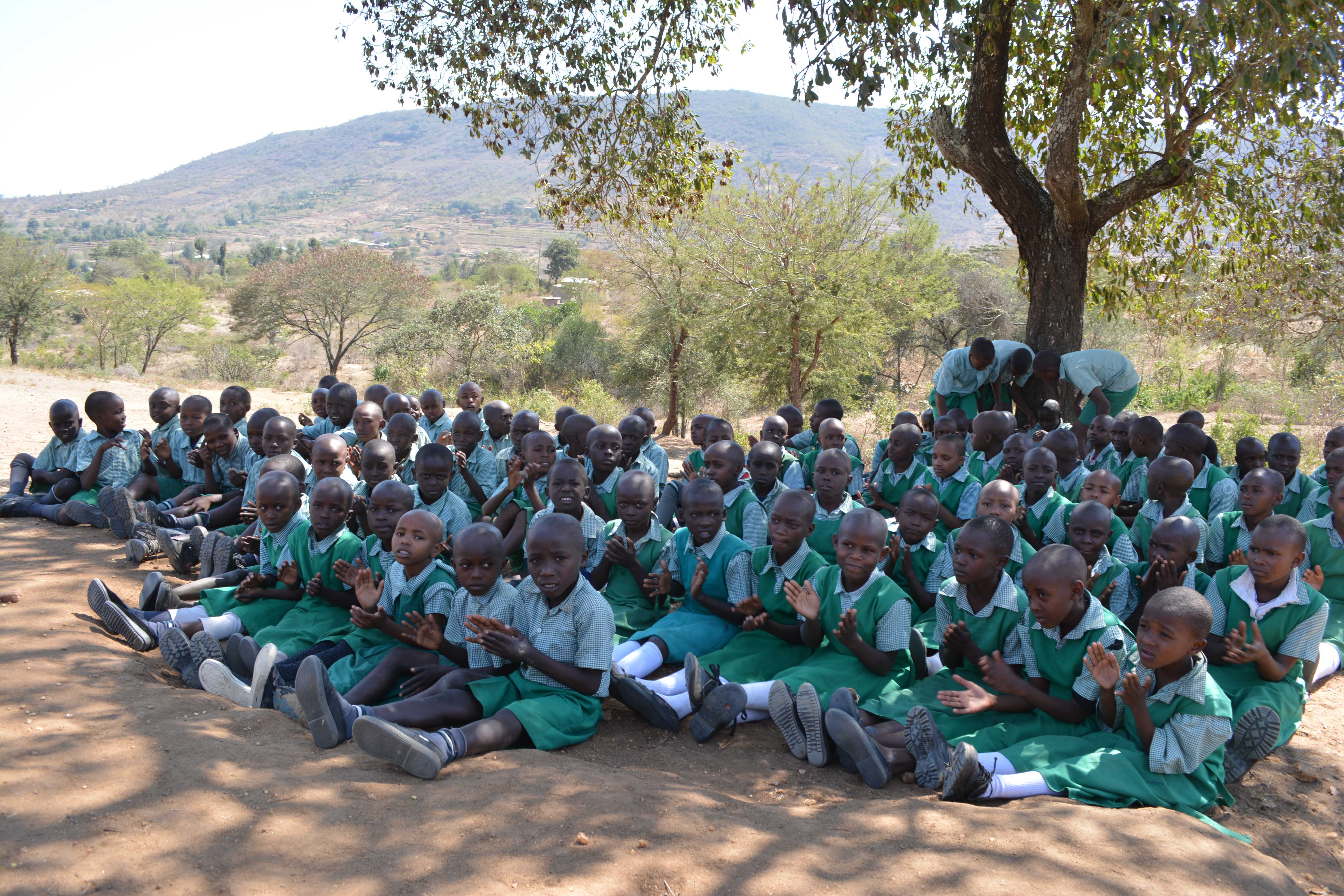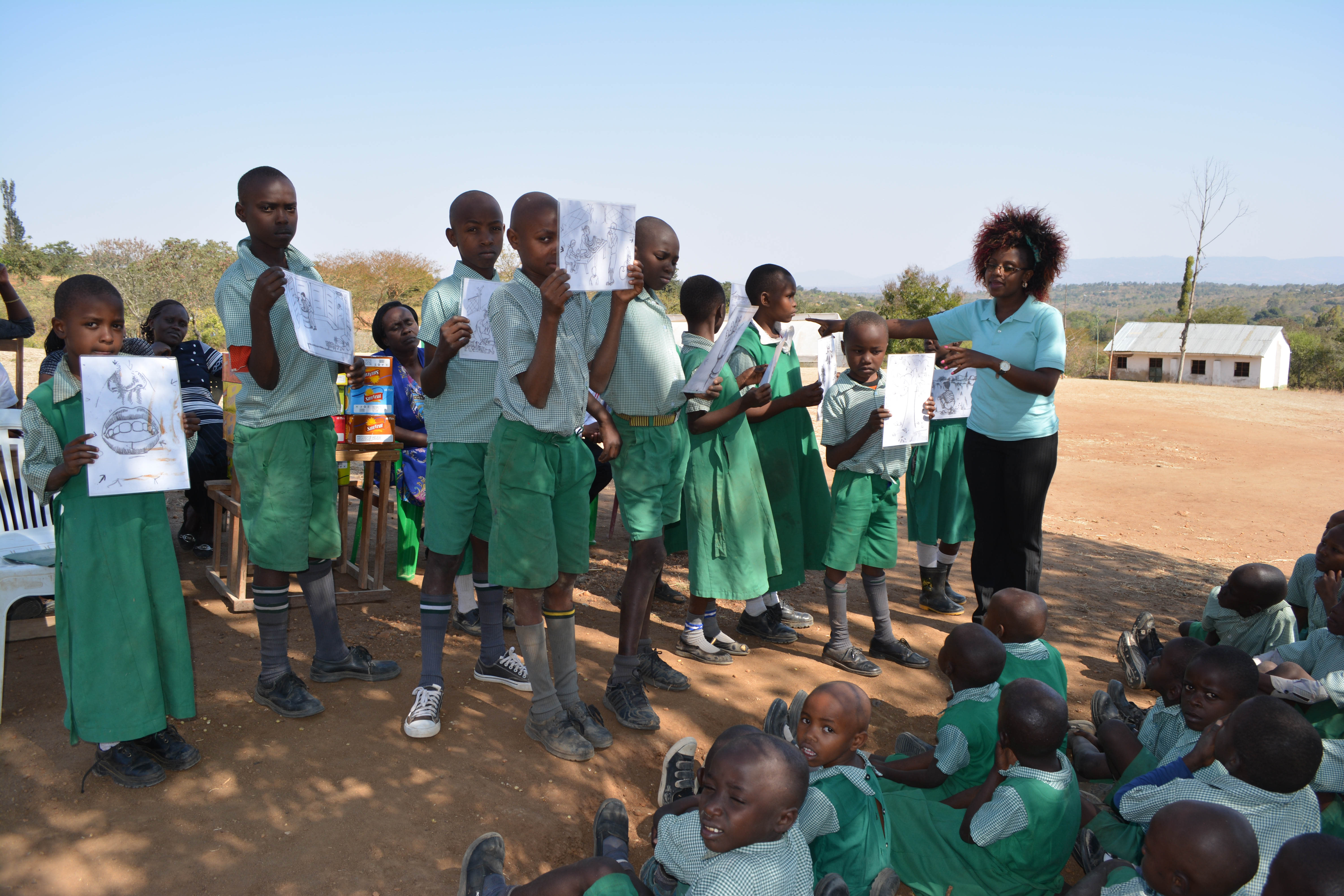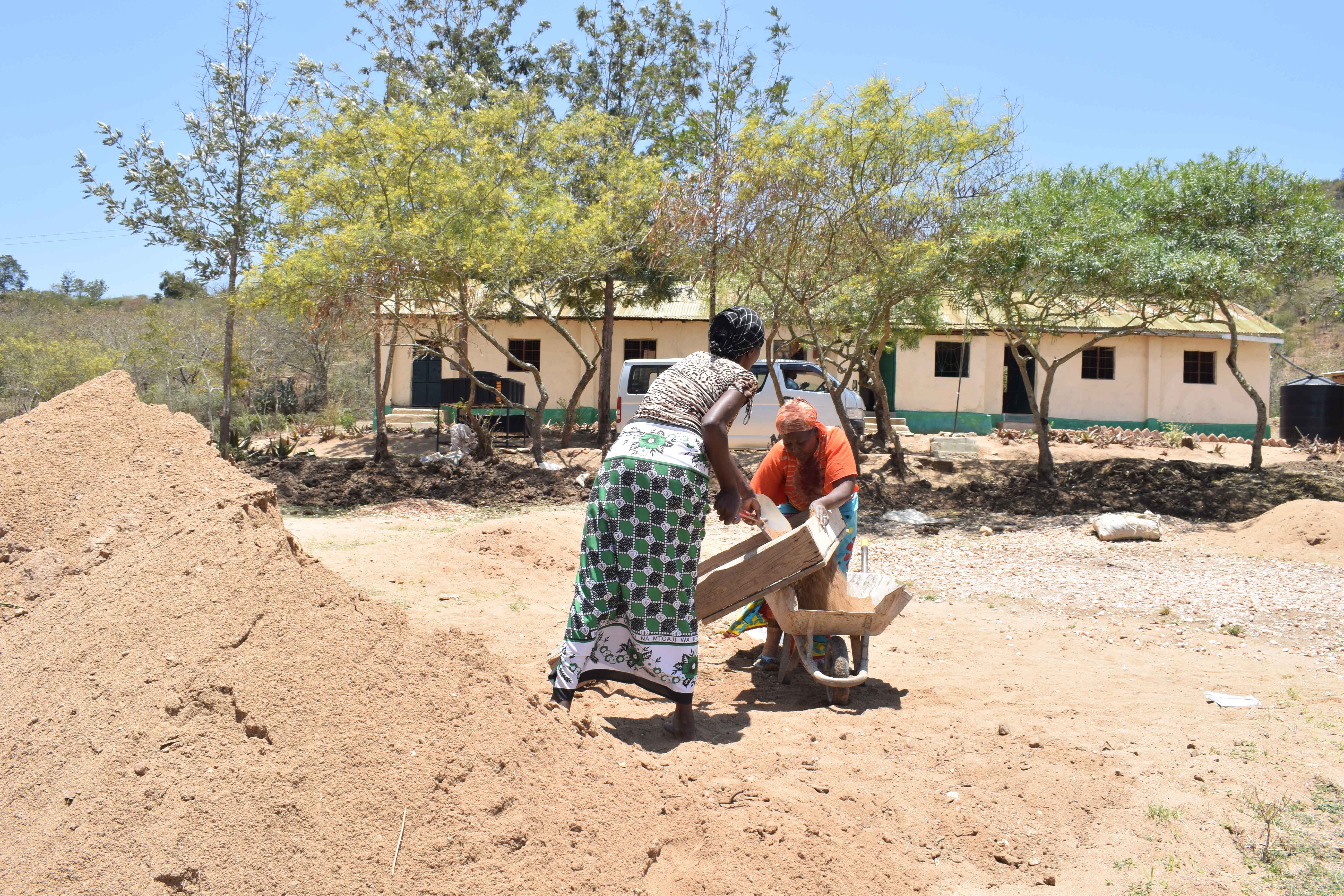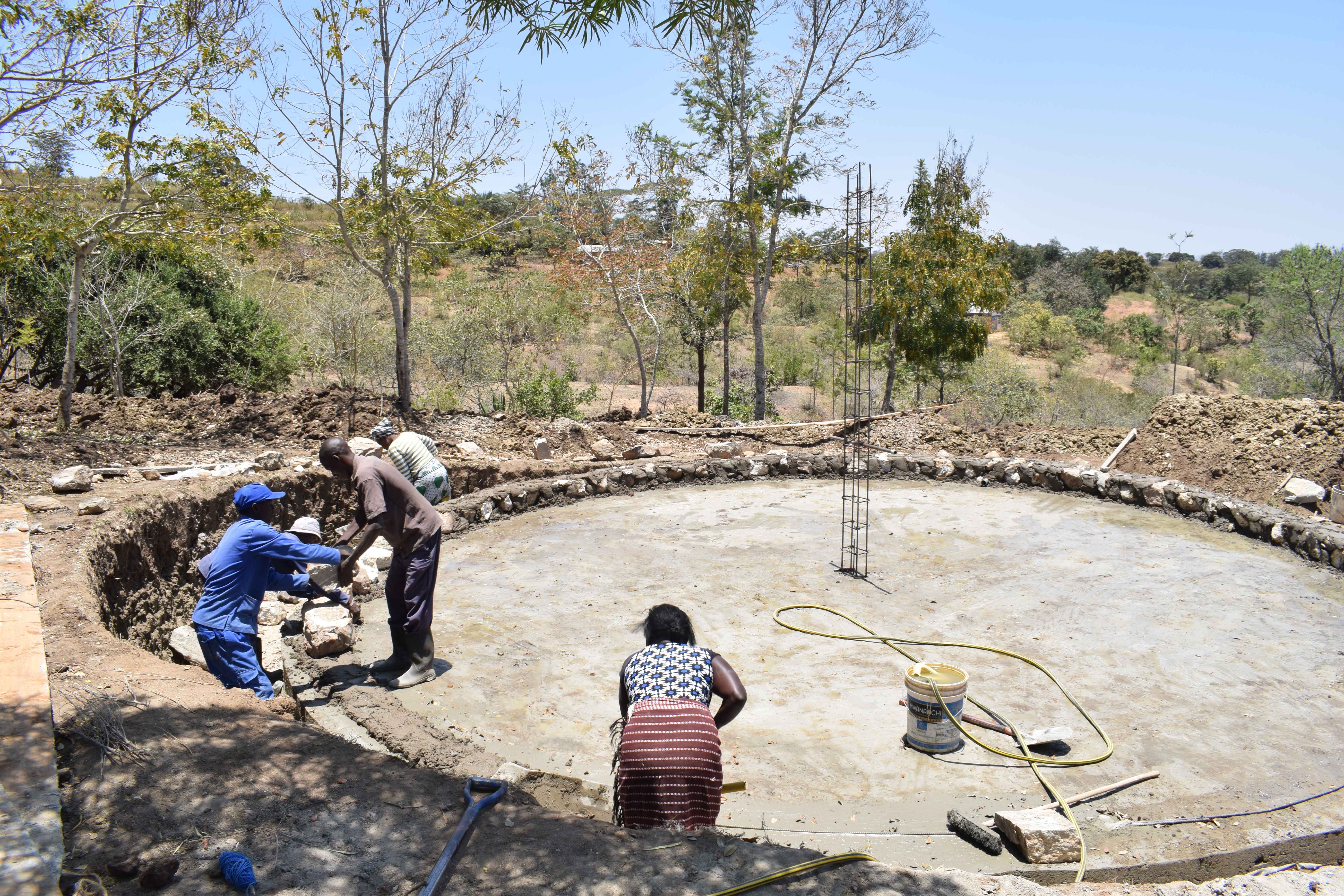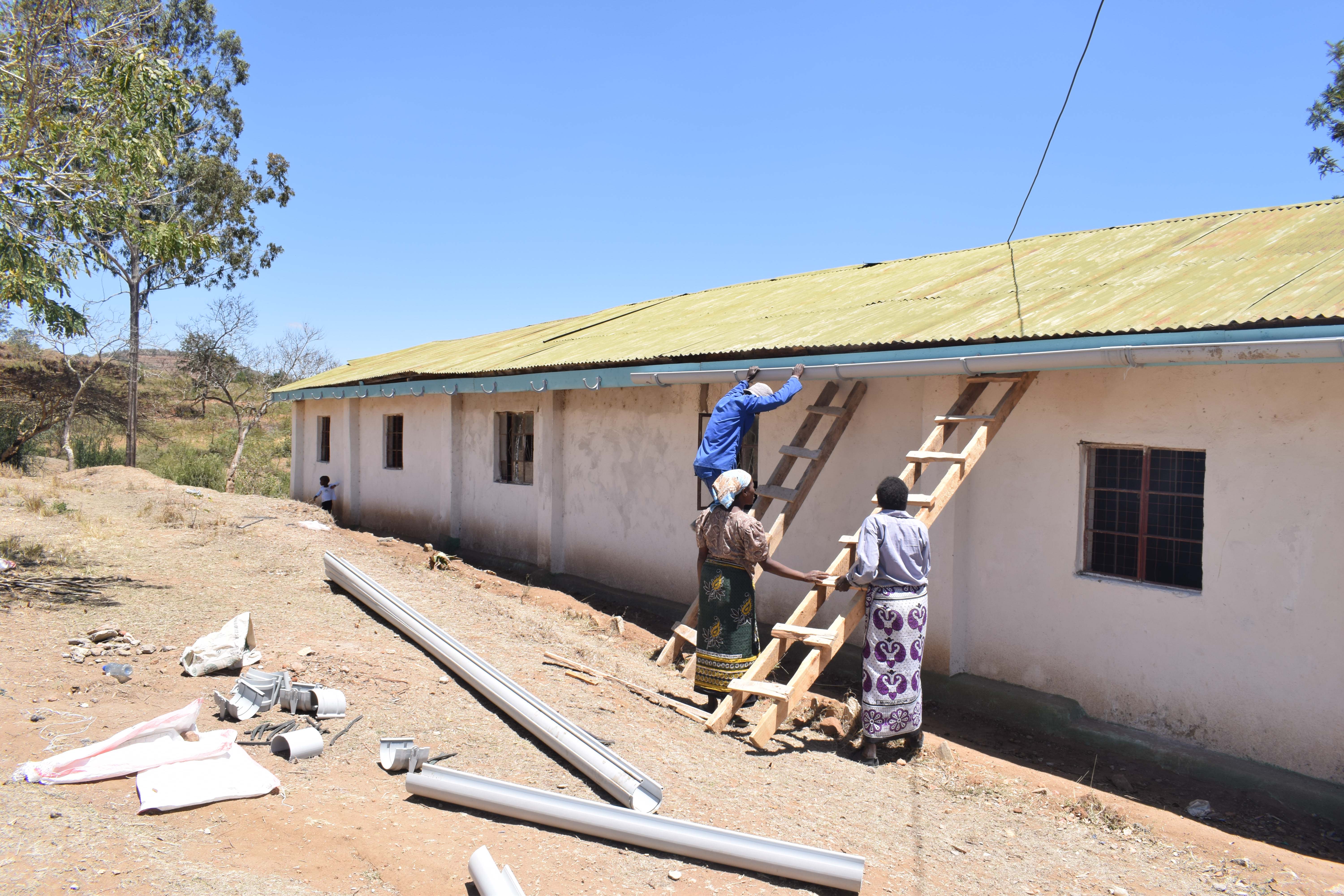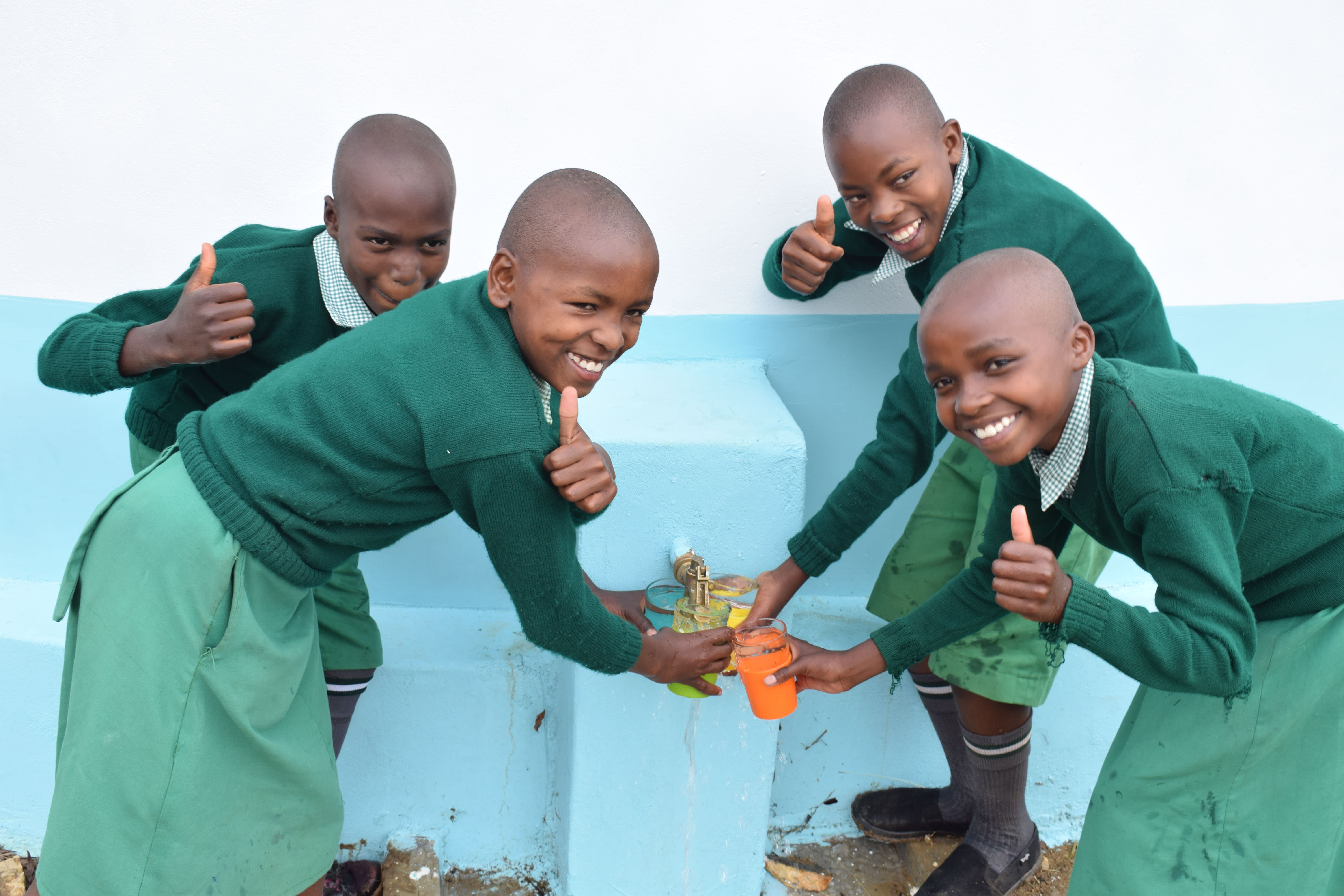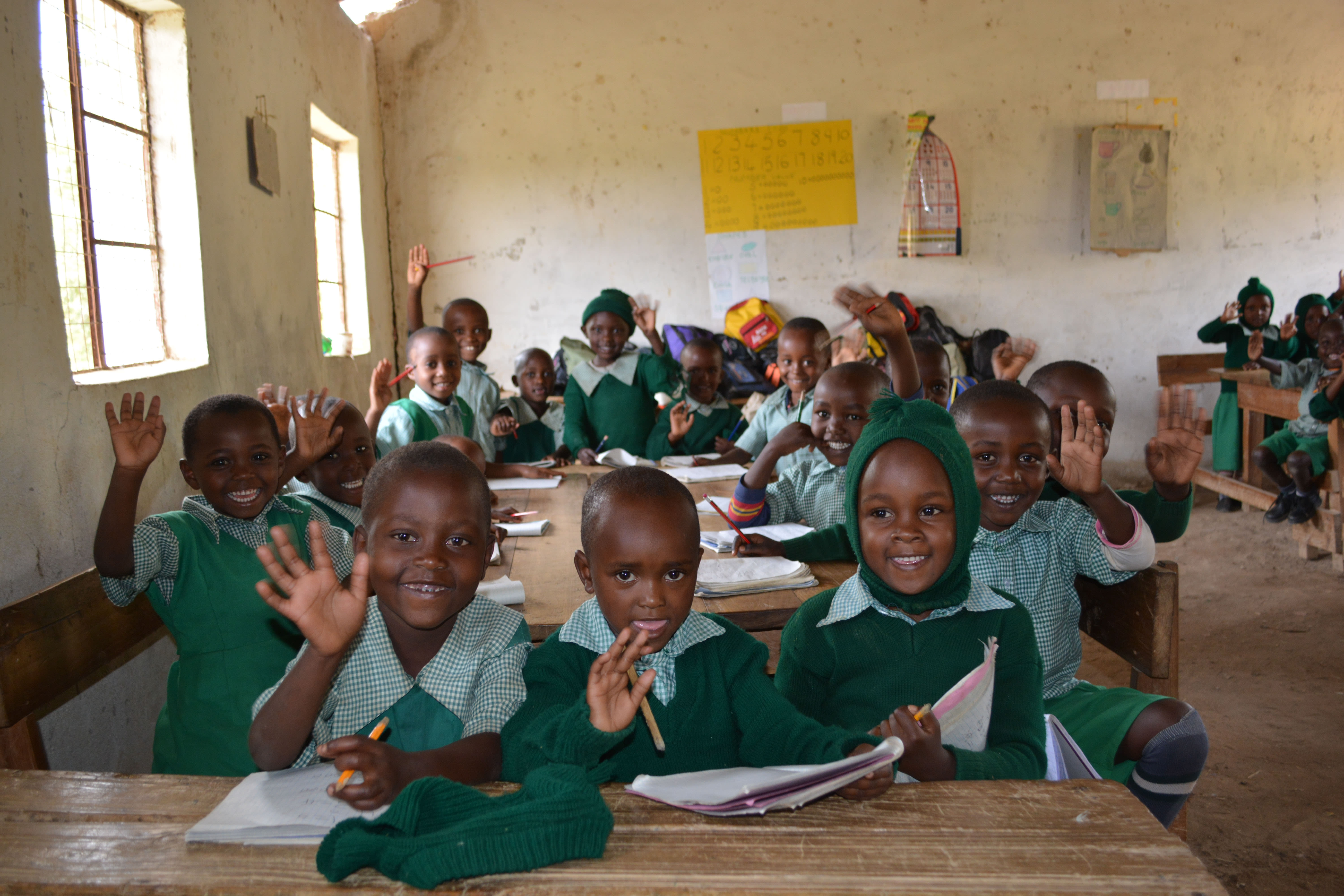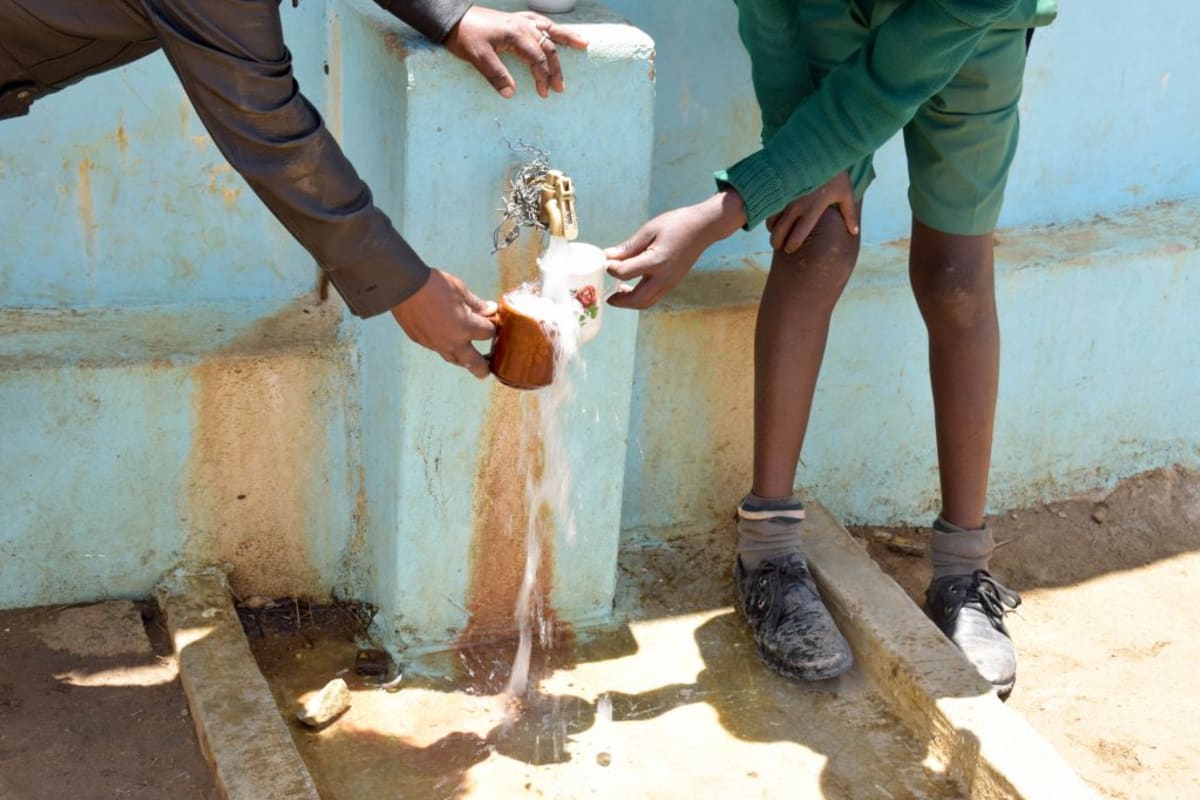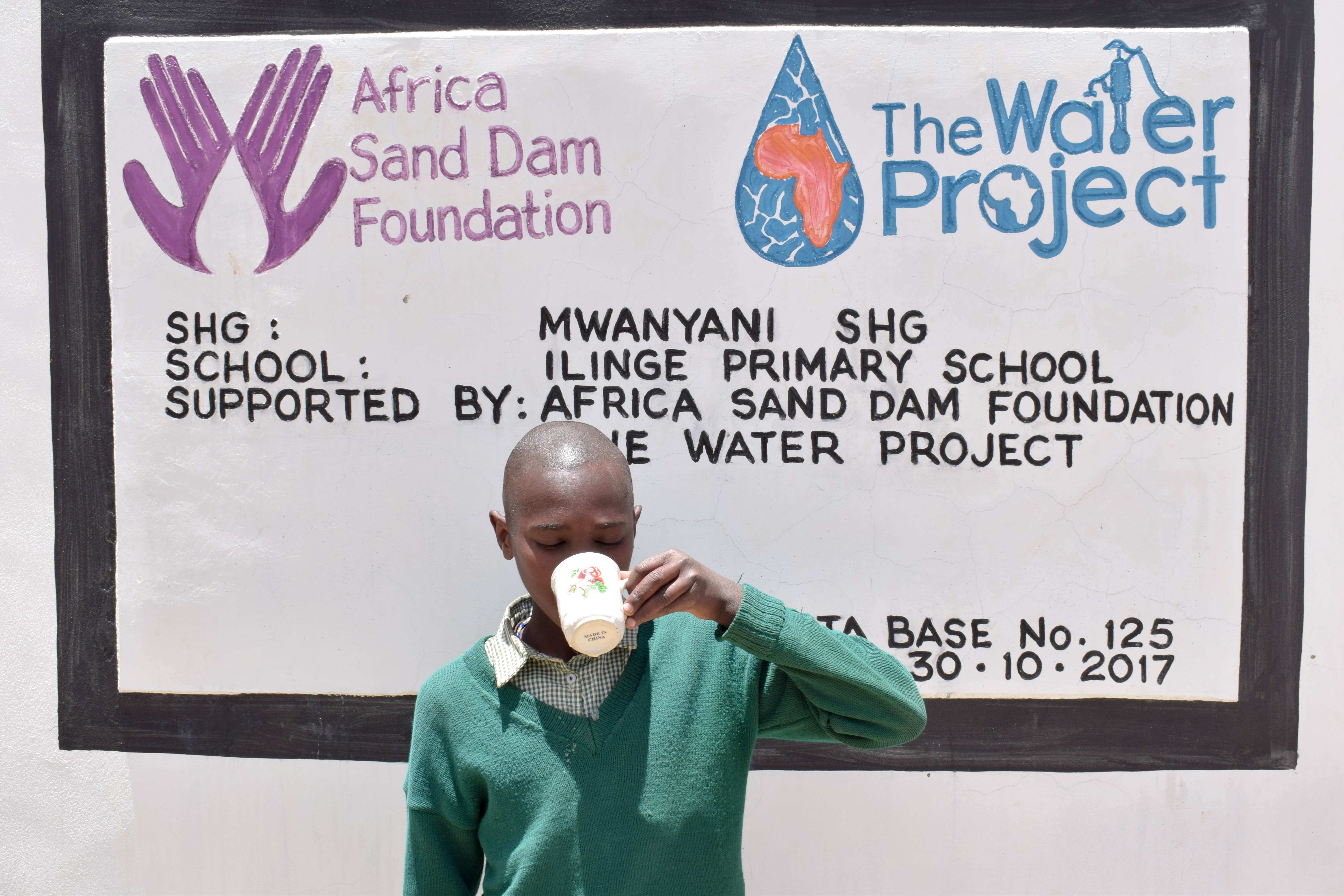Ilinge Primary School is located in Ilinge Village of Machakos County, Kenya. It employs 11 teachers and two support staff who take care of 171 students.
The school is affiliated with Mwanyani Self-Help Group. By virtue of them being either parents or grandparents of students at the school, they clearly understand the water challenges faced on a daily basis and the pressure that this scarcity piles up on their children. It is for this reason that they proposed to construct a rainwater catchment tank.
Water
No matter how difficult it may be, Ilinge Primary School needs no less than 140 liters for drinking and cooking every day. There are two existing storage facilities of 5,000 liters each, but these plastic tanks are not enough to ensure a constant water supply to 171 students. If strictly rationed, these last only two months before they need rain again. However, rain is rare in southeastern Kenya.
Pupils suffer a lot due to thirst and can't concentrate in class. Sometimes, the cook can't even prepare lunch for the students because there isn't enough water.
Because of this short supply of water, students are required to carry between two to five liters of water every day, depending on their age. Children report that they fetch this water from scoop holes in the riverbeds. 13-year-old Syovili Muoki said, "I fetch water with a donkey every evening after school for our family use. Our donkey carries four 20-liter jerrycans. The river is very far from our home, and sometimes the donkey gets very exhausted while carrying the jerrycans. It’s always a tedious job but I have no choice. The same water I fetch, I always carry it to school."
Muasa Kavete said, "I have to be in school at exactly 6am with a five-liter jerrycan of water, a log of firewood, and my school bag. Our home is a one hour walk to the school. With all these loads, I always arrive feeling very tired. In case I fail to carry the water, I am punished by the teacher on duty and sent to the river to collect it. I always leave school in the evening and pass via the river to fetch water for use at home and for carrying to school the next day. I get very exhausted and I cannot do my homework."
Cases of waterborne diseases such as typhoid and amoeba are on the rise among pupils because of drinking contaminated water. This not only leads to absenteeism, but also denies pupils their right to play during games time as they are instead sent to collect water from the rivers. Absenteeism from the school has become the norm rather than the exception because when pupils realize that there’s no water at their homes that they can carry to school, they opt to skip school for the fear of being punished.
Kilonzo Munyao told us that his worst fear is falling down and spilling his water on the way to school. "In case I fall down and my water pours out, I always feel very bad because I am forced to borrow from my friends - whom I fear they might be carrying dirty water, thus risking my health."
Hygiene and Sanitation
Hygiene standards are wanting - pupils can't wash their hands with water after visiting latrines or even before eating their food. Under such circumstances, cleaning of latrines and classrooms becomes a luxury, and is rarely spoken of.
There are six pit latrines, but no hand-washing stations - nor would there be enough water to fill them. The school has a designated place for students to throw their trash, but no pit to keep it from blowing around and littering school grounds.
Students clearly understand that their environment is a danger to their health - but they are also aware that things could be turned around if they had easy access to clean water.
Here's what we're going to do about it:
Training
Students and staff will be trained for one day. Those in attendance will form a school health club that will promote good hygiene and sanitation practices both at school and home. They will learn all of the steps to proper hand-washing, how to treat water, and how to keep their environment clean. The school will also be taught how to best oversee and maintain their new rainwater catchment tank and hand-washing stations.
Hand-Washing Stations
Three hand-washing stations will be delivered at the project’s completion. These are 1,000-liter plastic tanks fitted with four taps. The health club and school management will be responsible for making sure tanks are filled with water and that a cleaning agent such as soap or ash is available.
Rainwater Catchment Tank
We will build a 104,000-liter rainwater catchment tank for this school. This water will benefit the students, teachers, and supplementary staff. Parents will mobilize the materials needed for construction, such as sand and stone. They will also lend some strong arms to help with the actual construction.
The huge capacity of this tank makes the others look tiny in comparison; 104,000 liters should be enough water to carry students through the entire dry season. As soon as the tank has time to cure, it can begin to collect rainwater for drinking, cooking and cleaning!
This project is a part of our shared program with Africa Sand Dam Foundation (ASDF). Our team is pleased to provide the reports for this project (formatted and edited for readability) thanks to the hard work of our friends in Kenya.

 Rainwater Catchment
Rainwater Catchment
 Rehabilitation Project
Rehabilitation Project











